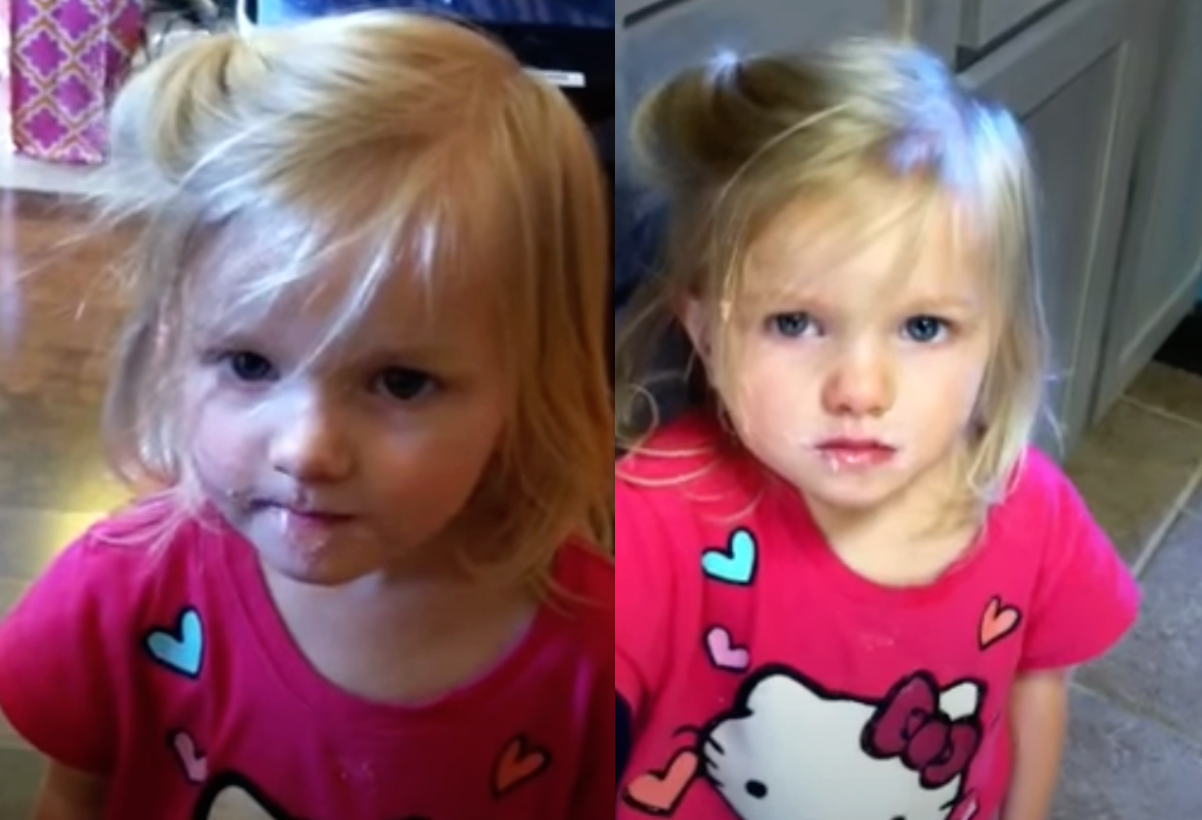In a small kitchen filled with the enticing aroma of freshly baked cupcakes, a confectionery caper unfolded as the delightful treat disappeared without a trace. The spotlight, however, fell on a pint-sized protagonist who adamantly refused to admit her involvement in the disappearance. “I didn’t eat the cupcake!” echoed the resolute voice of the little girl, casting a shadow of innocence over the sugary crime scene.
As crumbs and frosting remnants scattered like tiny clues, the mystery of the missing cupcake deepened. With a defiant pout and wide-eyed innocence, the little girl stood her ground, deflecting all accusations. Family members exchanged knowing glances, caught in the whimsical web of a child’s sweet denial.
The dining room became a makeshift courtroom, with the little girl taking center stage as the accused. As interrogations ensued, she maintained her innocence, employing a repertoire of adorably crafted excuses. From imaginary cupcake-eating monsters to fantastical tales of teleportation, her creativity knew no bounds.
Parents, torn between disciplining and chuckling at the audacity of the situation, attempted to coax the truth from their sweet-toothed detective. The missing cupcake became a symbol of defiance, a miniature rebellion against the inevitability of dessert rules.
In the end, as frosting-stained fingers pointed in every direction but her own, the little girl’s steadfast refusal to admit guilt added a sprinkle of charm to the culinary mystery. The missing cupcake may forever remain an unsolved case, but the innocence of childhood and the whimsy of sweet denials lingered on, turning a mundane kitchen into the stage for an unforgettable tale of tiny rebellions.

